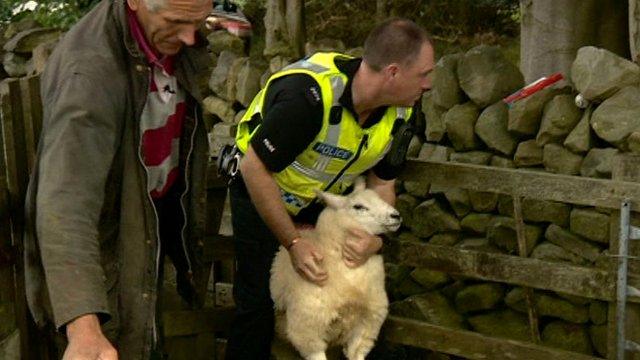Fleecing the farmers: The true cost of stealing sheep
- Published
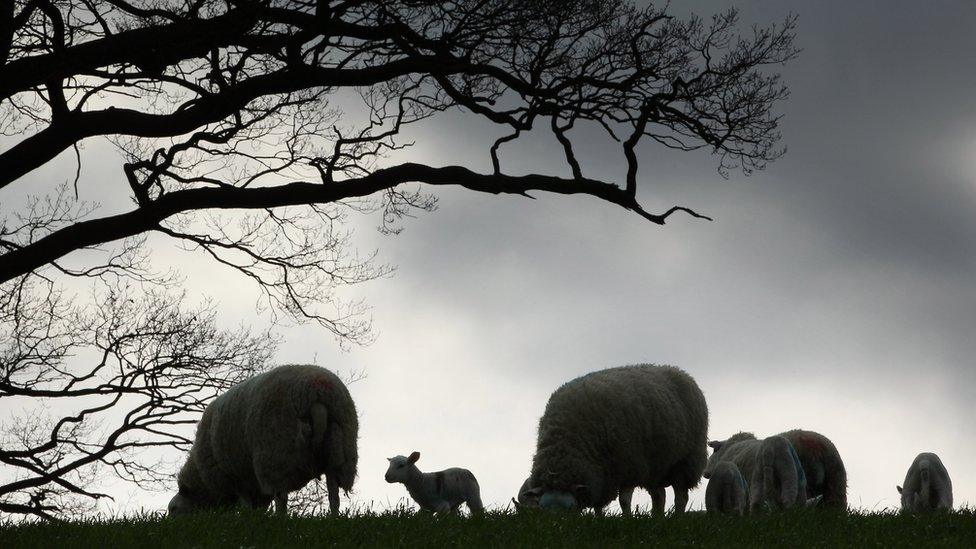
More than 88,000 farm animals were swiped in the UK by rustlers during 2014
Sheep rustling is often seen as an amusing or old-fashioned crime. But as thieves who stole £35,000 worth of livestock from farms on both sides of the Pennines are jailed, what is the true cost of fleecing the farming community?
Since cavemen first kept goats, rustlers have targeted livestock owners.
And though it is one of the oldest felonies on record, it shows no signs of abating.
In fact, rather than being consigned to the history books as an archaic crime, the National Farmers' Union Mutual Insurance Society says a trend is emerging in which more sheep are being stolen each time.
The figures certainly appear to support their fears.
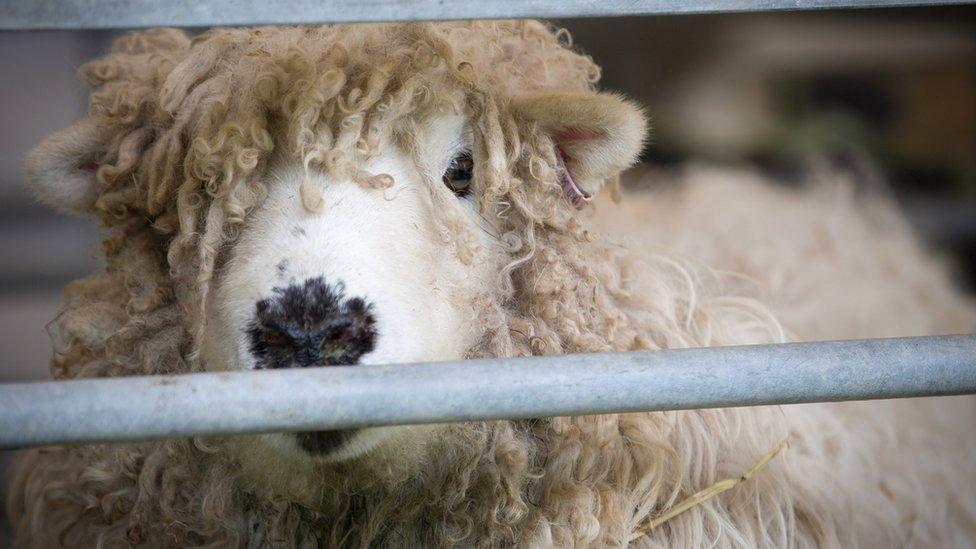
Farmers are hit not just with the cost of replacing sheep but also by delays to the production line
BBC research revealed more than 88,000 farm animals were snatched by thieves in the UK during 2014, at a cost of £6.6m to farmers.
Roughly half of those were stolen in England, where the north eastern parts of the country were targeted most often. The crime, however, often crosses county borders.
Stockman Thomas Redfern was jailed for 21 months earlier for stealing sheep worth £35,000 from farms on both sides of the Pennines, including one in Wray, Lancaster, and another in Skipton, North Yorkshire.
His fellow rustler Andrew Piner received a 34-month sentence.
On Tuesday, Charles Neville Raine and his nephew Phillip Raine, who owned farms in Bowes, County Durham, were jailed after more than 100 stolen sheep were found on their land.
The animals, worth £25,000, went missing from farms in County Durham, North Yorkshire and Cumbria, prompting police to hold livestock line-ups so farmers could identify their lost ewes.
But while these rural crimes are laid bare in open court, what becomes of the victims they target?
Rustling in numbers
88,691
livestock stolen in the UK in 2014
43,628
livestock stolen in England
-
£6.6m Cost to UK farmers of sheep, cattle and pig rustling in 2014
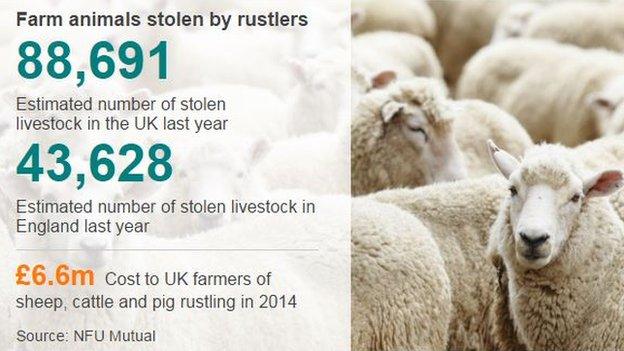
Farmer Rodney Kettlewell has had 25 sheep stolen from his site near Finghall at Leyburn in the past couple of years and says the problem has blighted the area for years.
He said the cost of losing a "good ewe" is about £200 but the repercussions go far beyond the outlay of replacing lost animals.
"When you find they have been stolen it's heartbreaking because even though you don't know every one, you do know your own sheep," he said.
"But it's also a heck of a financial loss, these animals add up to serious money and it upsets the production, because you have to replace them, then you have to wait a year for the lambs.
"It just adds to the hardship of shepherding, if you get a couple stolen from a big herd you can absorb it, but if you've only got a few, it can be serious and it can put you out of sheep-keeping."
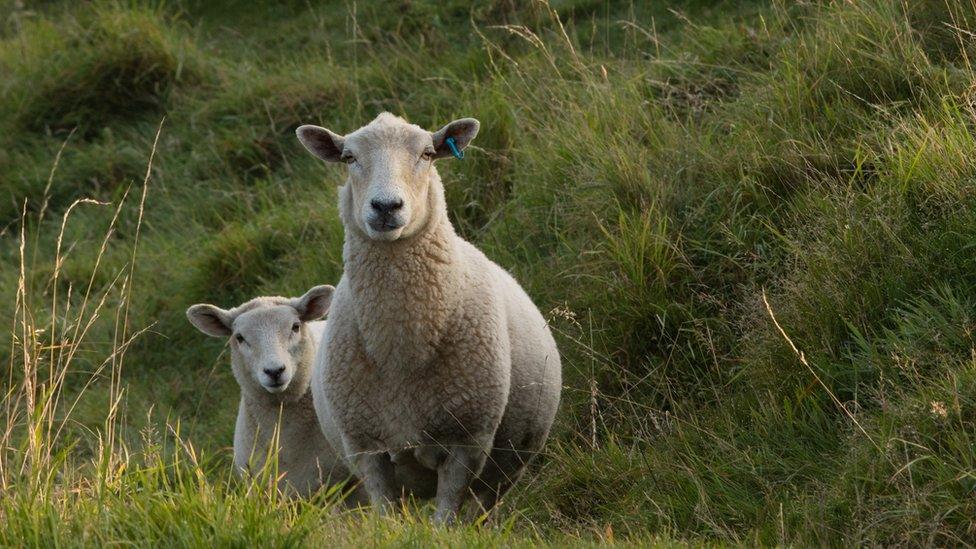
Farmers say it's 'heartbreaking' when their animals are stolen
Farmer Rob Wolrond suffered a serious blow when almost half his flock was taken from his farm near Langport in Somerset early last year.
He found the gate to his field had been taken off its hinges and 90 ewes and 50 lambs worth £14,000 had been stolen overnight.
"It was a big chunk of our farming business to lose, if we hadn't have been insured we would have lost a lot of money," he said.
"But to be honest, I would rather have the sheep. We brought them up ourselves and they knew the farm and when you buy new stock it takes a lot of work.
"It takes time to get back on your feet."
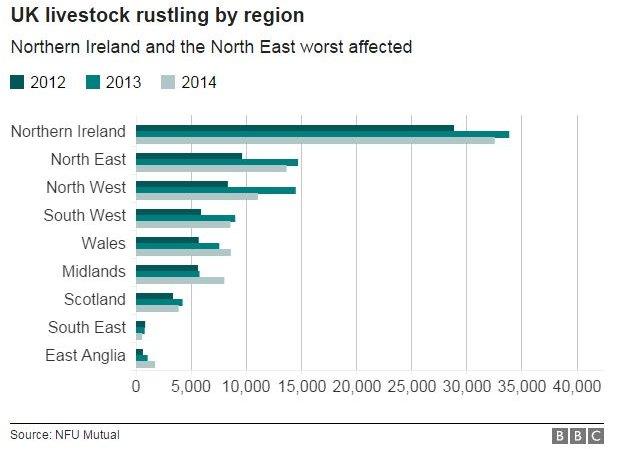
Short of locking the gate at night, there's little that can be done to stop rustlers from taking their pick of a person's livelihood.
"By their very nature, you can't make fields into fortresses," said Mr Wolrond.
But NFU Mutual said there were a number of measures that could be taken to minimise the crime, including joining a FarmWatch scheme and ensuring stock is clearly marked.
Tim Price, rural affairs specialist for the group, said: "Preventing rustling is not as easy as putting a padlock on a building, or fitting a security system to a tractor.
"You can't lock up livestock overnight or fit an immobiliser to them, however, there are a number of steps farmers can take to reduce the risk."
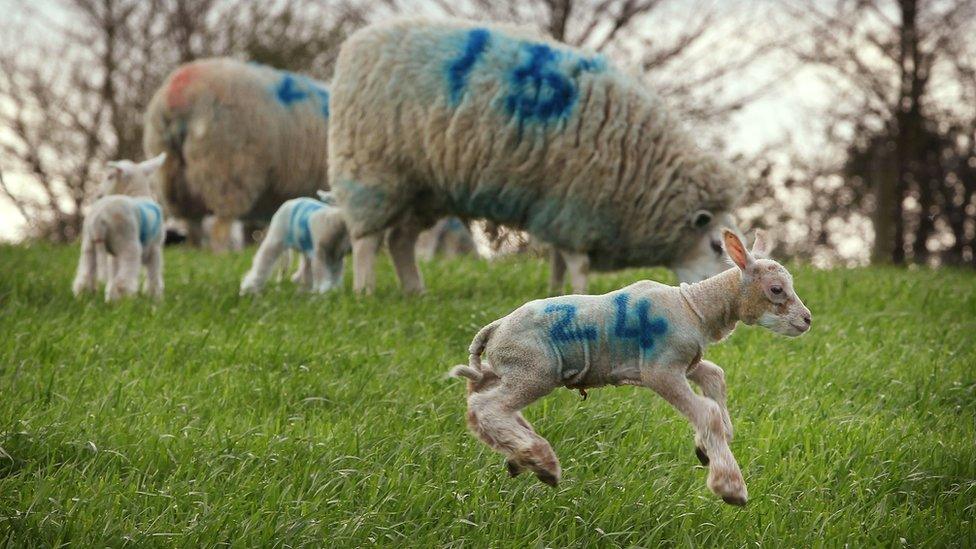
Marking sheep to help identify them is just one way to keep track of the flock
Julia Mulligan, chairman of the National Rural Crime Network, said training had been given to farmers and officers on how to safeguard stock and report suspicious activity.
"Sheep rustling can unfortunately come across as old-fashioned, and even slightly amusing, but the reality is very serious," she said.
"If your local high street jewellery shop was burgled to the tune of £20,000, it would be easy to see the impact on a small business, but when you say sheep have been rustled, often the implications are not understood.
"Farmers spend decades building up bloodlines and investing in their flock, and then overnight all that can be taken from them."
- Published7 January 2016
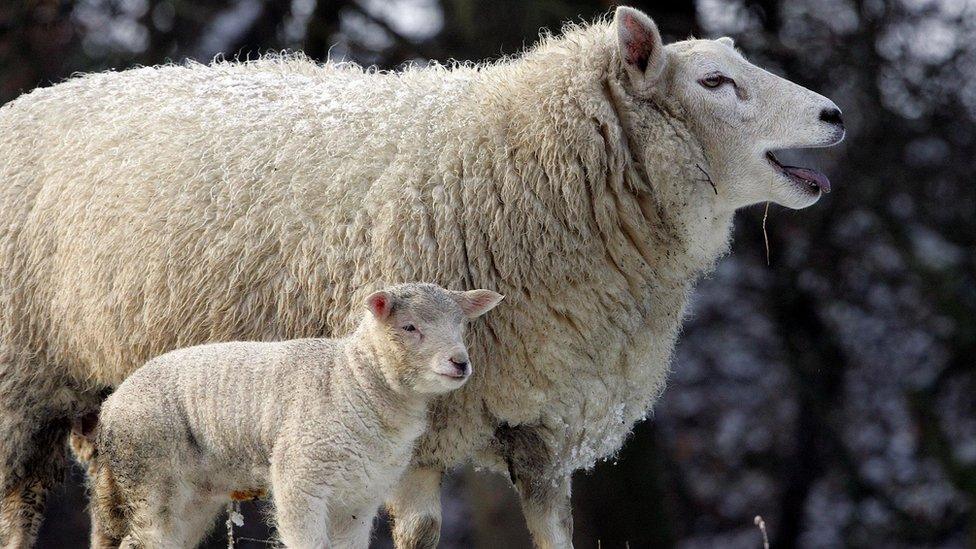
- Published3 December 2015
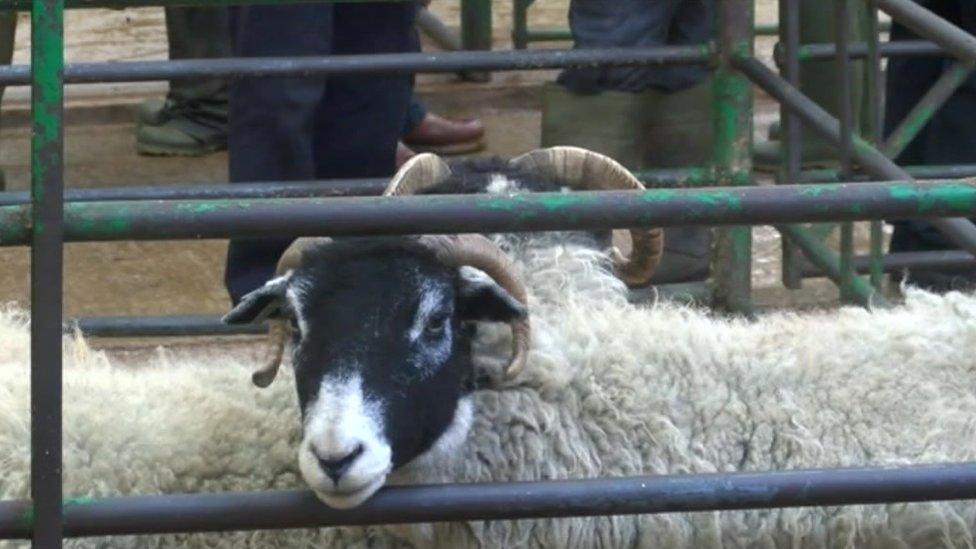
- Published5 November 2015

- Published10 October 2015
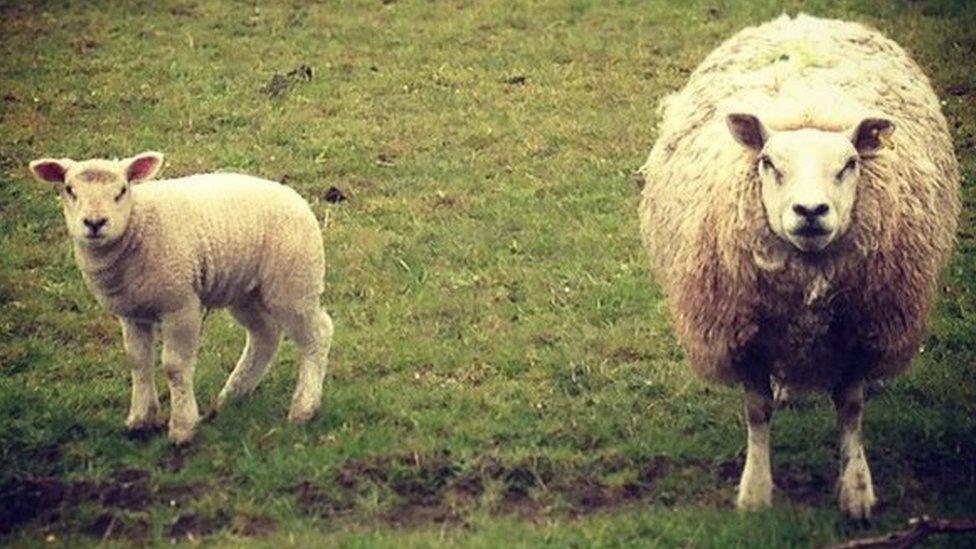
- Published1 October 2015

- Published26 August 2015
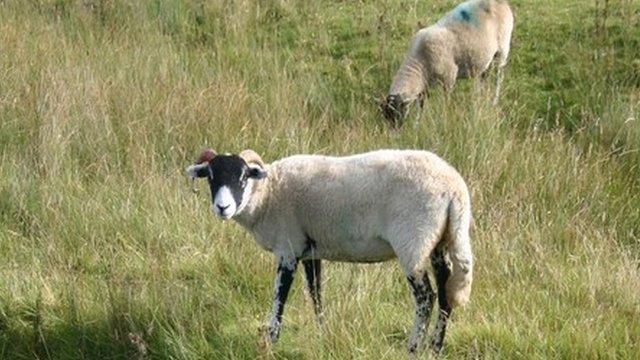
- Published15 August 2014
